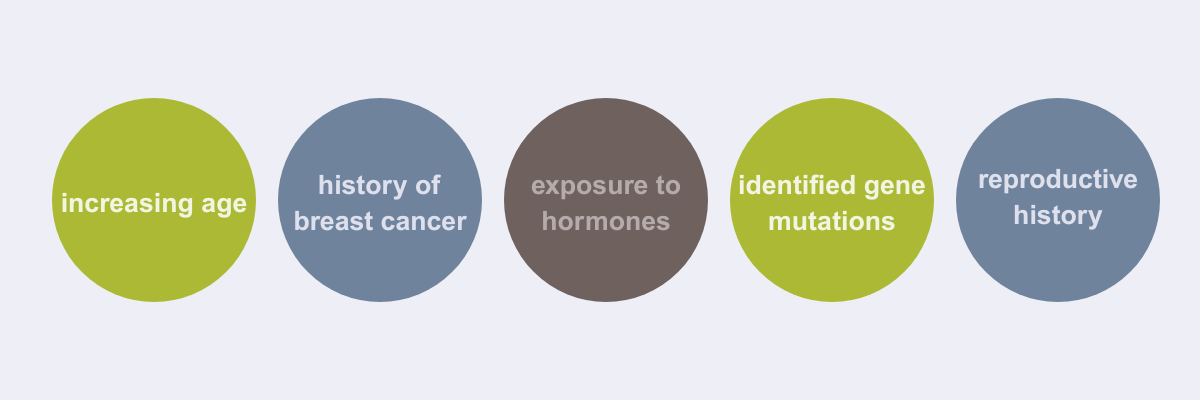Gynaecological cancer ... know the risks!
What may increase your chance of getting gynaecological cancer?
According to Cancer Australia, while the causes of many gynaecological cancers are not fully understood, there are a number of factors associated with the risk of developing one or more types of gynaecological cancer. Some of these risk factors include:

I'm getting older. Is my risk for gynaecological cancer increasing?
The risk of a woman being diagnosed increases beyond the age of 65. Therefore we say that being 65 or older is a known risk factor.
I've had breast cancer before. Does that mean I'm at higher risk for gynaecological cancer?
Yes. Due to the close association of breast and ovarian cancer in certain genetic conditions/mutations, a woman diagnosed with breast cancer may carry a genetic disposition to subsequently being diagnosed with ovarian cancer. If you've been diagnosed with breast cancer, we recommend asking your doctor if you may be a candidate for genetic counselling.
Breast cancer patients also have a significantly elevated risk for uterine cancer.
What do hormones have to do with gynaecological cancer?
During her lifetime, a woman may opt to take hormones for contraceptive means or to support her through and after menopause. While hormones taken for contraceptive means (i.e. the pill) essentially promote the health of the ovaries by 'giving them a break', they may not have such a positive effect on the uterus. Hormones taken through medication are linked to a decreased rate of ovarian cancer, but are also associated with a slightly increased risk of endometrial cancer.
Additionally, estrogen-only hormone replacement therapy (HRT) taken after menopause may be associated with an increased risk of ovarian cancer.
What is an identified gene mutation?
There are many things we still don't know about gynaecological cancer, but we are aware of some of the risk factors. In the image above, we've identified 'family history or identified gene mutations' as a primary risk factor. These mutations include BRCA1, BRCA2 and Lynch Syndrome. A woman will often undergo genetic testing if it is established she has a strong family history that may predispose her to gynaecological cancer. The great news is that today, there are preventative choices available for women who are deemed to have a genetic mutation.
What does my reproductive history have to do with gynaecological cancer?
Women who have never given birth, have unexplained infertility issues (i.e. inability to bear children), never breastfed or had their first child after the age of 30 are at increased risk for ovarian cancer.
